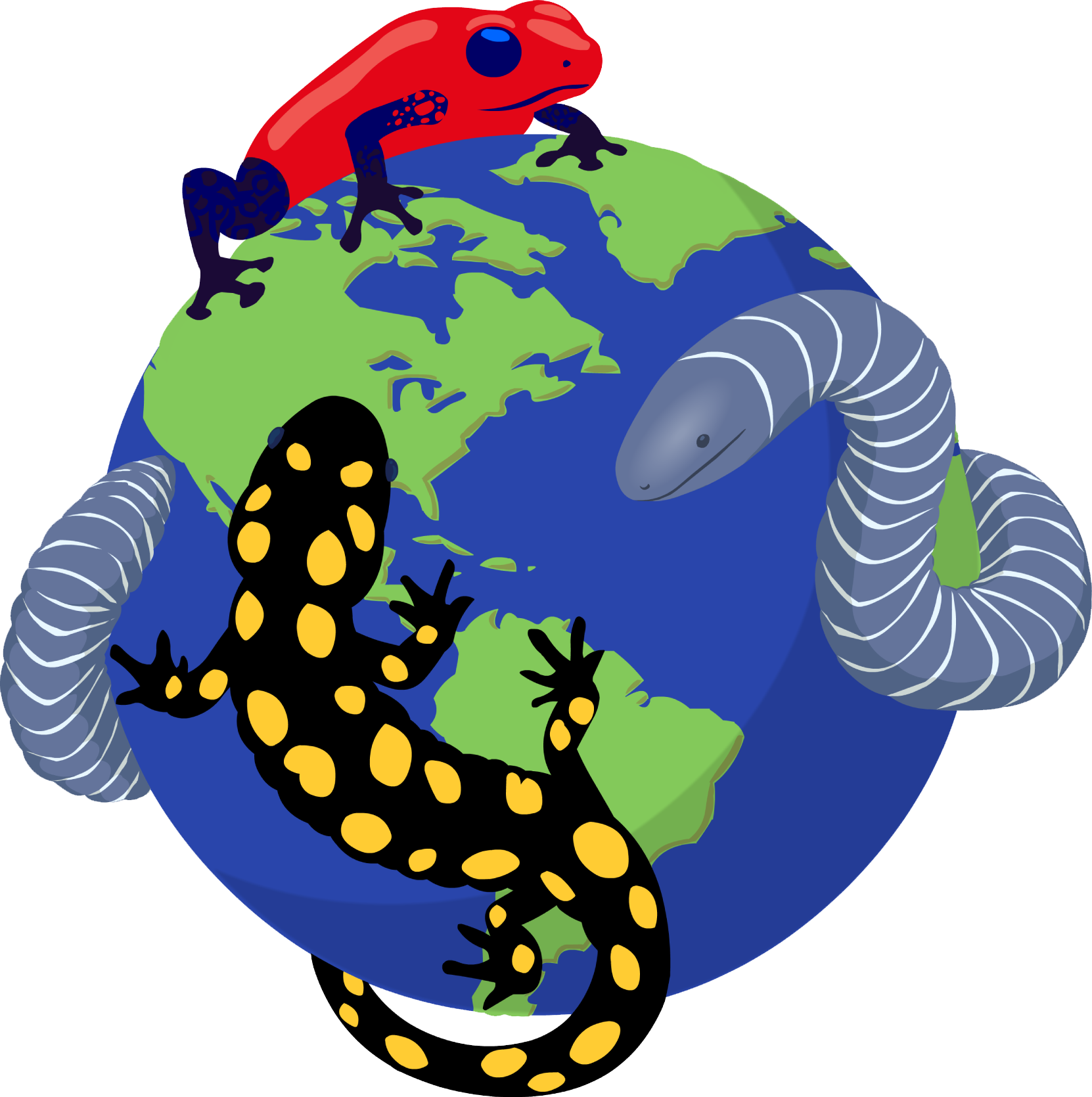|
Description
This is a small, slender, long-tailed species with a narrow head and short limbs relative to other species in its range. Its hands and feet are small and digits short; there are only four toes. There are 15 (rare) to 17 costal grooves. For a member of its genus it is relatively robust with moderately long limbs. It is a dark animal with an almost black or blackish-brown ground color and an irregular dorsal band or stripe that is typically reddish brown. The sides are covered with a rich speckling of small white spots which become increasingly large ventrolaterally. The venter is covered with large separated white spots that give it a distinctive appearance.
Distribution and Habitat
Country distribution from AmphibiaWeb's database: United States U.S. state distribution from AmphibiaWeb's database: Oregon
This species is known only from the northern and central Cascade Mountains and associated lowlands in central and northern Oregon. It occurs on both the western (common) and eastern slopes of the mountains. It is typically found in mature forests dominated by Douglas Fir. They occur under bark and logs, and inside rotting logs.
Life History, Abundance, Activity, and Special Behaviors
The species lays eggs that develop on land and hatch directly without a larval stage. Relatively little is known about the reproductive biology of this species, but it is known that they oviposit in the spring and females guard egg clutches. Eggs are not laid communally, as in many other species in the genus. Maximum clutch size is 10, and it takes 126 days, on average (in the laboratory) for the eggs to hatch, a relatively long period for the genus (Jockusch and Mahoney 1997).
Trends and Threats
The species does best in uncut forests, and is not found in heavily logged areas.
Relation to Humans
This species is relatively obscure and little encountered by humans. However, it is a unique organism whose closest relatives occur in very arid regions of inland California and it merits special attention.
Possible reasons for amphibian decline Habitat modification from deforestation, or logging related activities
Comments
This species is a member of the subgenus Plethopsis and shares many morphological and biochemical traits with the two other members of that taxon. In general members of this subgenus are shorter-bodied, shorter-tailed, and more robust than members of the subgenus Batrachoseps. In general the species is less than 50 mm snout-vent length, but one giant specimen reached 60 mm (Brame 1964).
References
Brame, A. H., Jr. (1964). ''Distribution of the Oregon Slender Salamander, Batrachoseps wrighti (Bishop).'' Bulletin of the Southern California Academy of Sciences, 63, 165-170.
Jockusch, E. L., and Mahoney, M. J. (1997). ''Communal oviposition and lack of parental care in Batrachoseps nigriventris (Caudata: Plethodontidae) with a discussion of the evolution of breeding behavior in plethodontid salamanders.'' Copeia, 1997, 1966-1982.
Kirk, J. J. (1991). ''Batrachoseps wrighti (Bishop), Oregon Slender Salamander.'' Catalogue of American Amphibians and Reptiles. Society for the Study of Amphibians and Reptiles, 506.1-506.3.
Originally submitted by: David B. Wake (first posted 2000-01-17)
Edited by: Joyce Gross (2008-01-13)Species Account Citation: AmphibiaWeb 2008 Batrachoseps wrighti: Oregon Slender Salamander <https://amphibiaweb.org/species/3948> University of California, Berkeley, CA, USA. Accessed May 27, 2025.
Feedback or comments about this page.
Citation: AmphibiaWeb. 2025. <https://amphibiaweb.org> University of California, Berkeley, CA, USA. Accessed 27 May 2025.
AmphibiaWeb's policy on data use.
| 




 Raffaëlli Account
Raffaëlli Account Map of Life
Map of Life